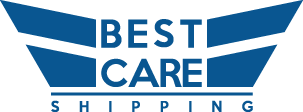Hanoi’s exports make sharp breakthrough
In order to increase export turnover, Hanoi has implemented activities on trade promotion, cooperation, and support among enterprises in the city. The capital’s export turnover made breakthroughs in 2017, with one of six socio-economic targets exceeding the plan.
|
|
| A production line at the Dong Xuan Knitting Company |
In 2017, Hanoi’s export turnover was estimated to reach US$11.542 billion, a year-on-year increase of 8%, with local exports accounting for US$9.582 billion, up 9.3% and the target set by the municipal People’s Council and People’s Committee. Commodities seeing a high growth rate over the same period last year were electronic goods (44.1%); gas and oil (29.4%); transport vehicles and spare parts (28.6%); and machinery, equipment, and accessories (25.1%).
The above results show that enterprises have seized the initiative to take advantage of the recovery of big economies as well as key export markets such as the US, Japan, EU, and China. In addition, the city’s authorities have synchronously developed numerous specific measures to support businesses in promoting their exports.
Since the beginning of 2017, Hanoi issued a series of projects and plans in this field, notably Plan No.89/KH-UBND on the implementation of measures to promote the city’s exports in 2017 which was released on April 17. In order to help enterprises gain basic knowledge during their access to international market, the city organised over 12 training courses for more than 2,400 participants through which information was provided on key export markets and free trade agreements (FTA) and ways to support enterprises during the international integration and mergers and acquisitions (M&A) activities. The courses also introduced handbooks providing trade defence guidelines on FTAs for different industries.
The city also paid special attention to trade promotion and economic cooperation, joining numerous fairs, expos, and trade programmes in the country and abroad. They created good opportunities for enterprises to promote their brands, and seek prestigious partners and importers, bringing about new business contracts.
At the 2017 Thailand Manufacturing Expo, enterprise in the field of supporting industry in Hanoi received 2,400 visitors to attend and sign 20 agreements and export contracts worth around US$1.5 million. Notably, Phong Chau Limited Company signed a contract with Whirpool Limited Company from Thailand, worth US$1 million a year. Chairman of the Board of Directors of Viet – Tiep Lock Joint Stock Company Luong Van Thang said that the city's trade promotion activities have helped enterprises reduce their time and costs when meeting and negotiating with partners, being more effective than a single trade promotion activity conducted by the enterprises themselves.
The city and enterprises have been successful in bringing domestic goods into the international retail system through many foreign supermarkets and distribution chains around the country and the capital. In 2017, Hanoi, in collaboration with the Ministry of Industry and Trade, helped domestic enterprises connect with seven big distribution groups from Europe and Asia, such as Auchan, Casino, Central Group, and Aeon. Director of the Hanoi Promotion Agency Nguyen Gia Phuong said that the city has paid close attention to cooperation with foreign enterprises and agencies to develop new export channels, contributing to the introduction of products to foreign customers, which are strengths of Vietnam in general and Hanoi in particular. The cooperation programmes have also supported enterprises to be directly involved in foreign distribution networks while limiting the intermediary stage.
However, in addition to the stable growth and recovery of most major exported items, many sectors still face difficulties. For example, the export turnover of the textile and garment industry declined 0.1% over the same period last year due to a lack of long-term contracts, reduced costs for processing from the US and EU markets, stricter requirements of techniques, the enterprises’ limitation in the ability to meet new requirements, and difficulties in joining foreign distribution networks. Chief representative of AEON Group in Vietnam Oyama Nagahisa said that in order to penetrate major foreign supermarket chains, Vietnamese products need to meet the standards related to food safety, environment, and origin.
Hanoi set a target of 7.5%-8% growth in exports in 2018. In order to reach the target, the city will synchronously implement measures to expand the market as well as developing traditional and potential markets for products with high competitiveness and added value or commodities with a large export turnover. The municipal agencies will also regularly provide enterprises with information about export markets and sectors and the FTAs in which Vietnam participated.
In addition, the city’s relevant agencies will continue to work with foreign distribution corporations in Vietnam to bring local enterprises’ products into the distribution chains; as well as form business delegations to attend international fairs in big and emerging markets and receive foreign enterprises visiting the capital to trade with domestic import and export businesses. Enterprises should focus on building brands for their exported products and winning over foreign consumers' trust for Vietnamese goods.
Theo NDO
TAGS
- export
- trade
- customs
- export import
- import-export
- rice export
- shrimp export
- logistics
- vietnam export
- import
- economic
- trucking
- imports
- shipping
- exports
- fruit import
- deficit
- business
- key export
- international trade
- eu trade
- membership in asean
- tuna export
- fibre, yarn export
- export to algeria
- import export vietnam thailadn trade
- businesses
- mobile phones export
- cargo container

